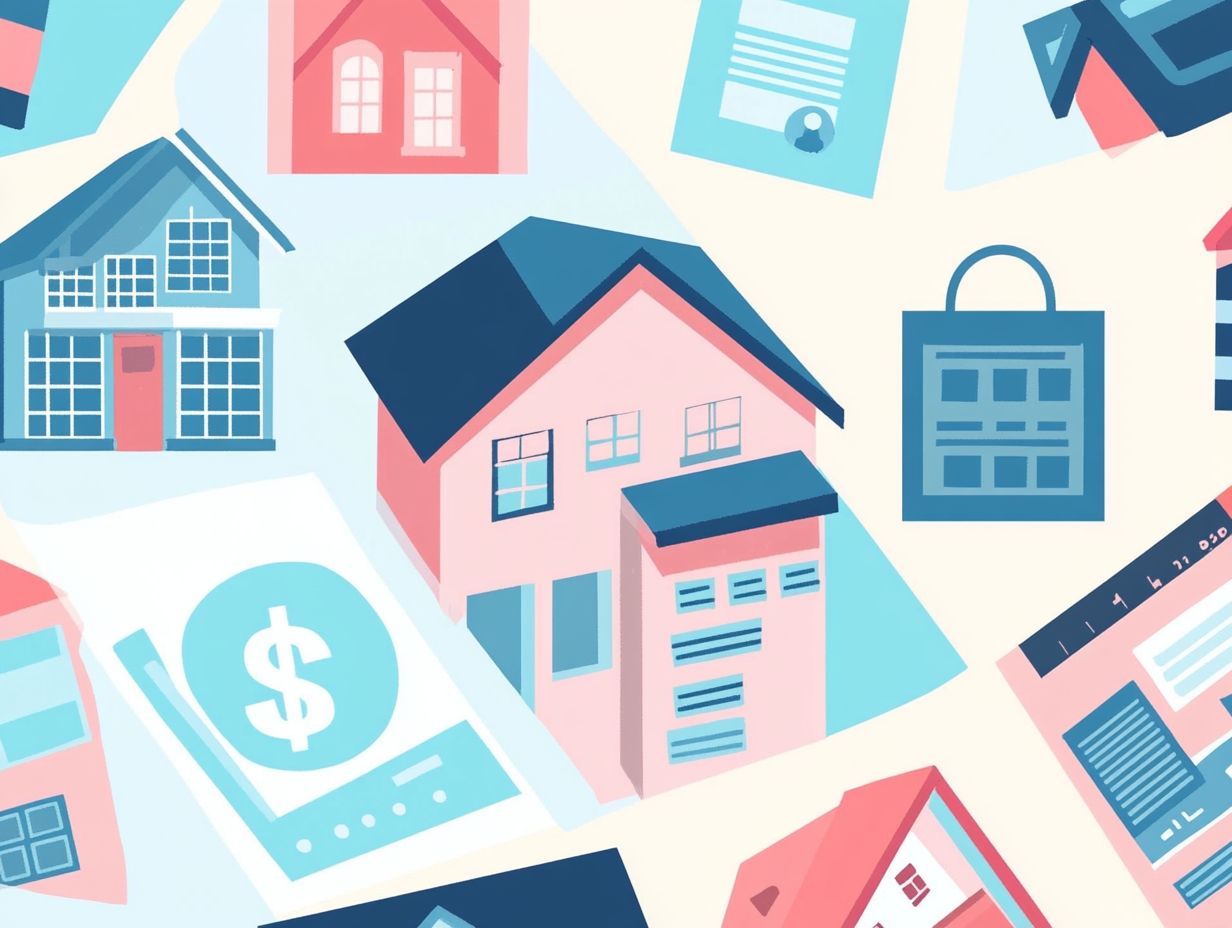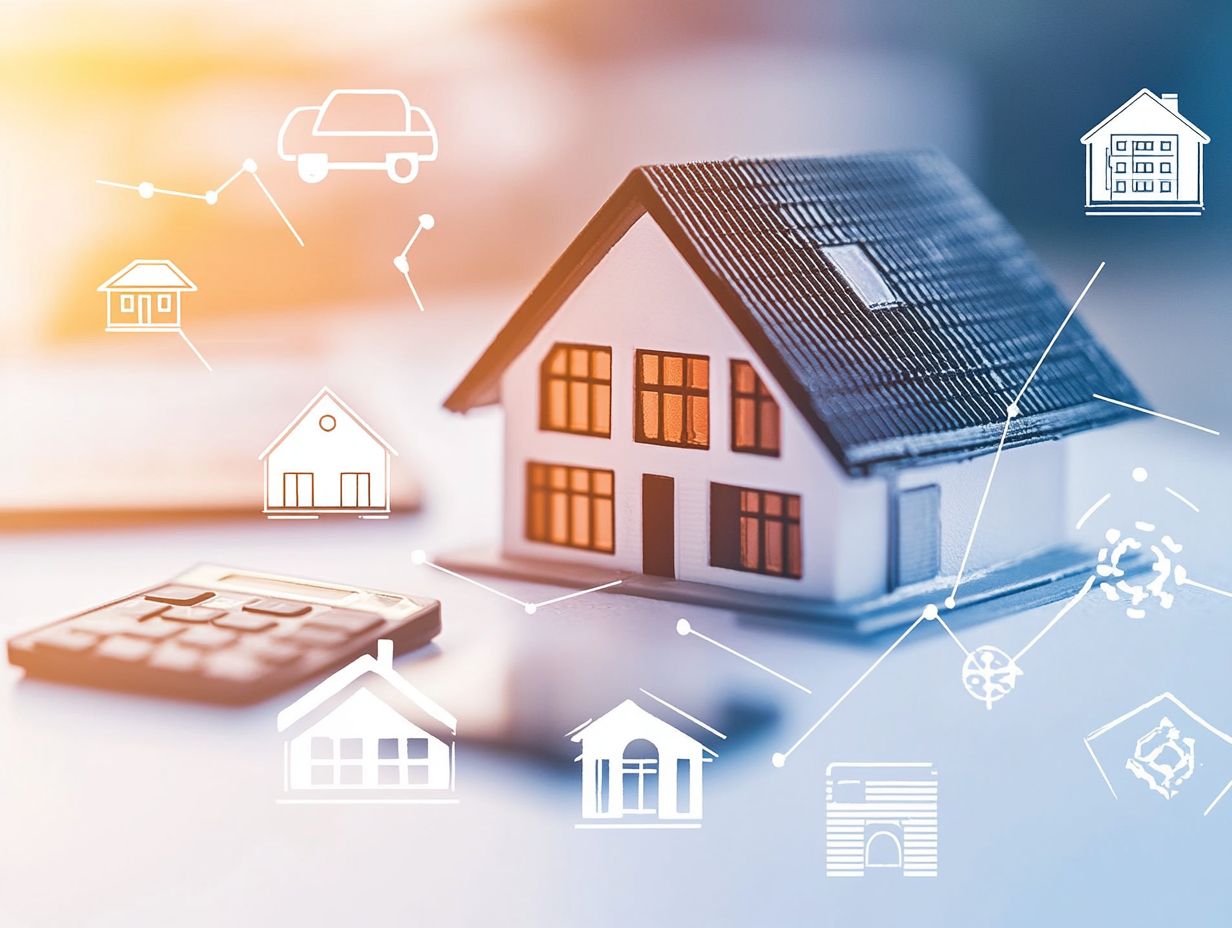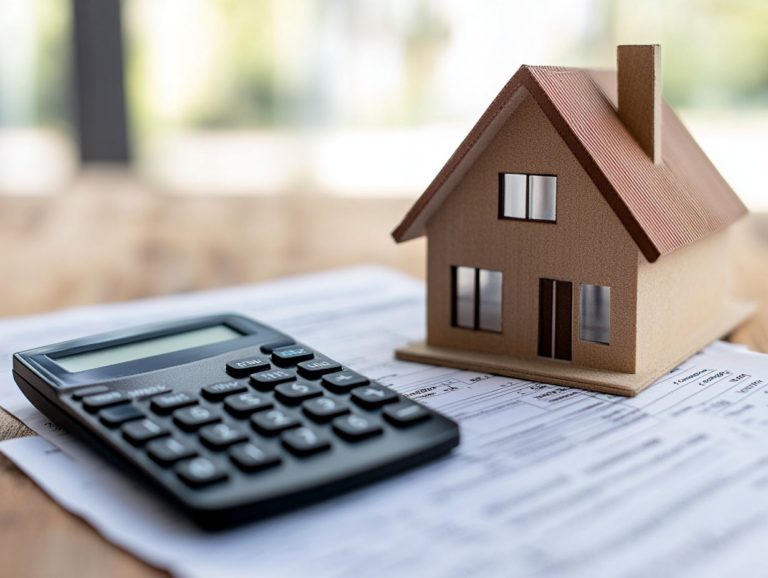What Are the Different Types of Mortgages?
Navigating the world of mortgages can feel overwhelming, especially with the myriad of options at your fingertips. Understanding what a mortgage is, along with the key distinctions between types from fixed-rate to adjustable-rate empowers you to make informed decisions.
This article delves into various categories, including government-backed and conventional mortgages, as well as specialty options designed for unique circumstances.
By the end of this article, you ll have the insights you need to choose the perfect mortgage for you!
Contents
Key Takeaways:

- Fixed-rate and adjustable-rate mortgages differ in terms of interest rates and potential risks. Consider your financial goals and tolerance for risk when choosing between the two.
- The government offers various types of mortgages with different eligibility requirements and benefits, such as VA loans for veterans and FHA loans for low-income borrowers.
- Specialty mortgages, such as interest-only and reverse mortgages, may be suitable for specific financial situations but come with their own set of pros and cons. Make sure to thoroughly research and understand the terms before committing.
Understanding Mortgages
Understanding mortgages is essential for anyone contemplating homeownership. Mortgages encompass various loan types designed to cater to different financial situations and aspirations.
Whether you re a seasoned homebuyer or venturing into the market for the first time, the intricacies of mortgage loans can influence your financial choices and overall housing strategy.
Options abound, from conventional and government-backed loans to specialized offerings tailored to unique needs. It s crucial to grasp the fundamentals of how these loans operate and their implications within the current housing market landscape.
What is a Mortgage?
A mortgage is a loan designed specifically for purchasing real estate. It enables you to secure the funds needed to buy your dream home while gradually repaying the debt over a set term. This essential tool opens the door to your dream home!
Typically, financial institutions like banks and credit unions offer these loans, evaluating your ability to repay loans, income, and repayment capacity.
Once you receive approval, you’ll submit a formal loan proposal detailing the amount you need and the terms for repayment.
Interest rates play a significant role in determining the overall cost of your mortgage. They influence how much extra you’ll pay throughout the life of the loan. Therefore, grasping the nuances of mortgages is essential for anyone looking to become a homeowner.
Fixed-Rate vs. Adjustable-Rate Mortgages
Fixed-rate mortgages and adjustable-rate mortgages (ARMs) are the two primary pillars of home loans. Each presents distinct advantages and considerations that can profoundly influence your budgeting and long-term financial strategy.
Key Differences and Considerations
The key differences between fixed-rate and adjustable-rate mortgages revolve around their interest rates, payment structures, and alignment with your financial situation and long-term goals.
With a fixed-rate mortgage, you enjoy the comfort of a consistent interest rate for the entire loan duration. This ensures your monthly payments remain stable and provides peace of mind, allowing you to plan your finances with confidence.
Adjustable-rate mortgages (ARMs) start with a lower interest rate that can change at predetermined intervals, leading to potential fluctuations in your monthly payments. Interest rates can change based on the economy and other market trends.
If you’re considering a home for a shorter term, the initial savings of an ARM might be particularly appealing. However, if long-term stability is your goal, a fixed-rate option could be the more advantageous choice for your financial future.
Government-Backed Mortgages

Government-backed mortgages, including FHA, VA, and USDA loans, are fantastic tools that can help you on your journey to owning a home. They often come with flexible credit requirements and lower down payment options.
These loans can make it easier to achieve your dream of homeownership.
Types of Mortgages Offered by the Government
FHA loans, VA loans, and USDA loans are the main types of government-backed mortgages, each designed to support specific groups of homebuyers with good terms.
These financing options cater to various needs, from first-time buyers seeking affordable housing to veterans looking for lending solutions that honor their service.
FHA loans are particularly beneficial for those with lower credit scores or limited resources for down payments, requiring as little as 3.5% down.
VA loans also offer eligible veterans and active-duty service members the fantastic benefit of no down payment and competitive interest rates, making homeownership a reality without the added burden of mortgage insurance.
Meanwhile, USDA loans help rural and suburban homebuyers, allowing individuals in qualifying areas to obtain financing with zero down payment. This ultimately promotes economic growth in less populated regions.
Conventional Mortgages
Conventional mortgages are one of the most prevalent financing options for homebuyers, featuring both fixed-rate and adjustable-rate alternatives.
These loans generally require a higher credit score and must align with specific loan limits set by financial institutions.
Types of Conventional Mortgages
The two primary types of conventional mortgages you ll encounter are fixed-rate mortgages and adjustable-rate mortgages. Each type presents unique advantages tailored to your financial strategy and risk tolerance.
Understanding these options can significantly impact your long-term affordability and financial stability. A fixed-rate mortgage offers consistency, with monthly payments remaining steady throughout the loan’s duration. This type is especially appealing if you plan to stay in your home for many years.
On the other hand, adjustable-rate mortgages (ARMs) have interest rates that can change over time. They usually start with lower initial rates that can fluctuate after a set period, making them enticing if you don t plan to settle in one place for long.
Each mortgage type also comes with its own requirements concerning mortgage insurance and down payment options, which influences their suitability for your specific financial circumstances.
Before making a decision, it s essential to evaluate your long-term plans and budget to choose the best path forward.
Specialty Mortgages
Specialty mortgages address unique financial needs and circumstances, offering alternatives that go beyond conventional loan options.
Whether you’re considering a construction loan, a renovation mortgage, or a physician loan tailored for your profession, these specialized products provide the flexibility and support you need to achieve your goals.
Non-traditional Mortgage Options

Non-traditional mortgage options, like interest-only mortgages, piggyback loans, balloon mortgages, and portfolio loans, offer unique solutions tailored to your financial needs or circumstances. These alternatives can be especially beneficial if you’re seeking flexibility that conventional loans can t provide.
For instance, with an interest-only mortgage, you can initially pay only the interest, leading to lower monthly payments and increased cash flow perfect for times when finances are tight.
- Piggyback loans allow you to avoid private mortgage insurance by securing two loans at once, which can be advantageous if your down payment is on the smaller side.
- Balloon mortgages come with lower initial payments, making them suitable for those who expect a significant income rise in the near future.
- Portfolio loans, which are held directly by lenders rather than sold on the secondary market, offer customized solutions for individuals facing unique situations, like self-employment or previous credit challenges.
Choosing the Right Mortgage for You
Selecting the right mortgage requires careful attention to various factors. Evaluate your financial situation, preferred loan term, credit requirements, and overall risk appetite.
This thoughtful approach helps you find the perfect fit for your unique housing plans.
Factors to Consider
When navigating the mortgage landscape, focus on key factors: your financial choices, credit score, down payment amount, and the prevailing interest rates that shape your loan options.
Understanding these elements is crucial as they significantly influence your mortgage terms and overall affordability. A higher credit score often leads to more favorable interest rates, translating into substantial savings over the life of your loan.
Assess how much you can comfortably set aside for a down payment. A larger down payment can lower your monthly payments and eliminate private mortgage insurance costs!
Staying informed about current interest trends is equally important. Utilize resources like financial news and comparison tools to identify the best deals available.
Ultimately, making informed decisions based on these considerations aligns your choices with your long-term housing goals, paving the way for financial stability and peace of mind.
Frequently Asked Questions
Here are some common questions about mortgages to help you understand your options!
What Are the Different Types of Mortgages?
- Fixed-rate
- Adjustable-rate
- Government-insured
- Jumbo
- Interest-only mortgages
What is a fixed-rate mortgage?

A fixed-rate mortgage is a home loan where the interest rate stays the same throughout the loan duration. This stability means your monthly mortgage payments remain unchanged, providing predictability in your budget.
What is an adjustable-rate mortgage (ARM)?
An adjustable-rate mortgage, or ARM, is a home loan with an interest rate that can fluctuate over time. Typically, the interest rate is fixed for a certain period and then adjusts based on market conditions.
What are government-insured mortgages?
Government-insured mortgages are home loans backed by government agencies like the Federal Housing Administration (FHA), the Department of Veterans Affairs (VA), or the US Department of Agriculture (USDA). These often have lower down payment requirements and more flexible eligibility criteria.
What is a jumbo mortgage?
A jumbo mortgage exceeds conforming loan limits set by Fannie Mae and Freddie Mac. These loans are commonly used for high-priced homes or in expensive housing markets.
What is an interest-only mortgage?
An interest-only mortgage allows the borrower to pay only the interest for a set period, usually 5-10 years. After this period, the borrower must start paying both interest and principal, potentially resulting in higher monthly payments.
For tailored advice and to explore mortgage calculators, consider reaching out to a mortgage expert!






